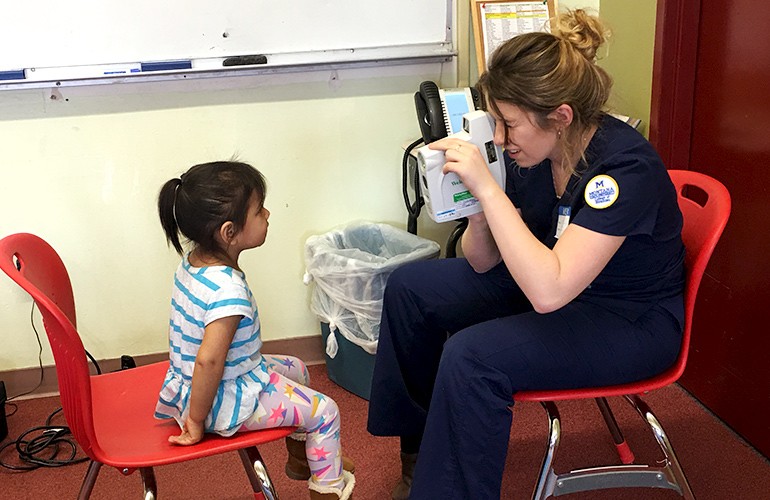Millions of nurses in diverse roles across the health care system are dedicated to helping people achieve their health goals and delivering compassionate and high-quality care.
During National Nurses Week and throughout the year, Health Care Service Corporation celebrates their many contributions.
Nearly 2,400 nurses serve nearly 23 million people who access care through HCSC’s health benefits solutions. They’re holistic health and medical management specialists, behavioral health care coordinators, clinical practice consultants and more.
“Nurses are the hub of everything we do, serving as the single point-of-contact to facilitate a seamless member experience,” says Jo Christison, director of clinical operations for HCSC’s health advocacy teams. “They are the owners of the member experience. They truly advocate for our members by wrapping their arms around them and their families to help them navigate the complex medical world, empowering them to optimize their health and live life to their fullest.”
Through grants, scholarships and partnerships, HCSC’s health plans in Illinois, Montana, New Mexico, Oklahoma and Texas support the work and education of nurses to help expand access to care, improve community health outcomes and reduce health disparities.
“About 50% of our students are first-generation college students,” says Alexa Doig, the nursing director for New Mexico State University. NMSU received a $200,000 gift from HCSC’s New Mexico health plan to fund scholarships for students who pledge to work in the state at least a year after graduating.
The funding helped 20 nursing students who otherwise may have struggled to stay in the program, Doig says. “A college degree really creates a lot of economic mobility for them and their families.”
Through its Caring Together program, HCSC’s Oklahoma plan is working with the Eastern Oklahoma Black Nurses Association to support nursing education, focusing on students who are also raising a family.
“It takes some determination and commitment to take care of a family and study,” says Valinda Jones, a an EOBNA member and senior manager of clinical operations for HCSC’s plan in Oklahoma, which sponsored two EOBNA scholarships.
“That’s why these scholarships are so important,” Jones says. “Students need the financial support because a nursing program can be quite expensive.”
In Montana, HCSC’s health plan has paired with Montana State University’s Mark and Robyn Jones College of Nursing to help tribal communities meet federal Head Start program requirements by addressing child health needs.
A mobile clinic program supported by HCSC’s plan works with the college to provide nursing students from five campuses clinical training in tribal communities across the state.
Students help health care providers perform patient assessments, including height, weight and blood pressure measurements, vision, hearing, blood lead and BMI screenings, immunizations and behavioral and developmental health evaluations. The screenings are required by Head Start, established almost 60 years ago to meet the emotional, social, health, nutritional and psychological needs of preschool children of low-income families.


